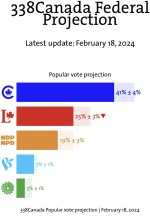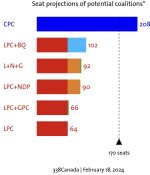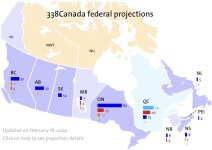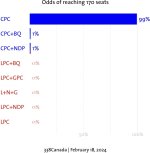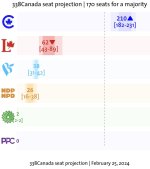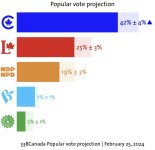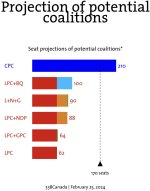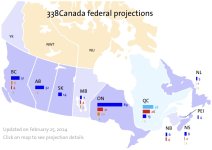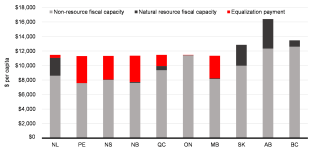Good times. Within a matter of days, that deal (the non-coalition coalition that’s definitely not a coalition-type coalition) will either collapse or carry on — depending on whether the two sides can come to some kind of agreement to bring pharmacare to Canada.
Two questions hang over that fork in the road for the two parties. Can the deal last? Beyond that, though, should the deal continue?
It appears that both sides agreed that full pharmacare — as the NDP-Liberal envisions it and the Liberals have on-and-off promised — won’t be coming to Canada in the near future.
“We're not saying the money's got to be in the budget. That's never been our ask. And we've never said that,” Singh said during a tough-talking news conference earlier this week. “But we do expect legislation that lays the foundation, and that's what we're asking for.” ????? So just as a time bomb for the next gov’t to have to scrap an look bad for cleaning up?
Singh also threw a bucket of cold water over what the Liberals-NDP’s have called a major problem — the possible damage to Canada’s credit rating if Trudeau introduces a whole new social program at this point in the mandate.
“There's lots of ways to clarify for credit-rating agencies that this is something that's going to require additional work — (that) it’s going to require additional steps to happen.” ???
New Democrats are saying that if the supply and confidence non-coalition coalition that’s definitely not a coalition-type coalition agreement ends over an impasse on pharmacare, they’re going to be arguing it’s the Liberals who walked away from the deal, not them.
That’s where we come to the more strategic considerations, for both sides, on whether they want the deal to continue — the should-it-last question.
For Liberals-NDP’s, this is mostly a no-brainer. The collapse of the deal may not precipitate an immediate election (but it won’t), but it makes Trudeau’s minority more precarious. And judging from all of the polls, odds are that an election could turn out badly for the Liberals? Ya think?
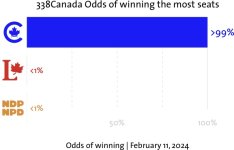
If election-avoidance is the only issue, the New Democrats would likely be similarly motivated to keep the deal going. Ya think?
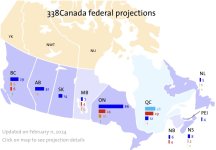
They (the NDP/Liberals, as opposed to the Liberal/NDP’s) may have limited clout as the fourth party in the House of Commons right now, but they would have zero influence, one assumes, in a Pierre Poilievre government.
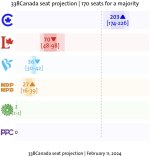
But two former leaders of the NDP (the actual NDP back when it was NDP) have openly questioned in recent months the wisdom of the party attaching its fortunes too closely to Trudeau’s Liberals.
In one of his last interviews before his death last month, Ed Broadbent told the CBC’s Rosemary Barton: “Maybe if the agreement were a year shorter, it might be a little better.”
This week, former leader Thomas Mulcair said on CTV that it was time for the NDP to walk away from the Liberals, too. “I think that they have to draw that line in the sand and then say the deal is done … They’ve got to show autonomy from the Liberals/NDP’s.”
Mulcair said that walking away now would position Singh perfectly for a future election, as a principled advocate for pharmacare.
The other benefit, which he didn’t mention, was that if Trudeau really is going into the next election as a liability for his party, it may be best for the New Democrats to start creating some distance between their party and Trudeau’s team.
Poilievre and his Conservatives have spent nearly two years branding the current regime as the “Liberal-NDP” government as opposed to the “NDP-Liberals” for their own strategic reasons.

 www.thestar.com
www.thestar.com
Two questions hang over that fork in the road for the two parties. Can the deal last? Beyond that, though, should the deal continue?
It appears that both sides agreed that full pharmacare — as the NDP-Liberal envisions it and the Liberals have on-and-off promised — won’t be coming to Canada in the near future.
“We're not saying the money's got to be in the budget. That's never been our ask. And we've never said that,” Singh said during a tough-talking news conference earlier this week. “But we do expect legislation that lays the foundation, and that's what we're asking for.” ????? So just as a time bomb for the next gov’t to have to scrap an look bad for cleaning up?
Singh also threw a bucket of cold water over what the Liberals-NDP’s have called a major problem — the possible damage to Canada’s credit rating if Trudeau introduces a whole new social program at this point in the mandate.
“There's lots of ways to clarify for credit-rating agencies that this is something that's going to require additional work — (that) it’s going to require additional steps to happen.” ???
New Democrats are saying that if the supply and confidence non-coalition coalition that’s definitely not a coalition-type coalition agreement ends over an impasse on pharmacare, they’re going to be arguing it’s the Liberals who walked away from the deal, not them.
That’s where we come to the more strategic considerations, for both sides, on whether they want the deal to continue — the should-it-last question.
For Liberals-NDP’s, this is mostly a no-brainer. The collapse of the deal may not precipitate an immediate election (but it won’t), but it makes Trudeau’s minority more precarious. And judging from all of the polls, odds are that an election could turn out badly for the Liberals? Ya think?

If election-avoidance is the only issue, the New Democrats would likely be similarly motivated to keep the deal going. Ya think?

They (the NDP/Liberals, as opposed to the Liberal/NDP’s) may have limited clout as the fourth party in the House of Commons right now, but they would have zero influence, one assumes, in a Pierre Poilievre government.

But two former leaders of the NDP (the actual NDP back when it was NDP) have openly questioned in recent months the wisdom of the party attaching its fortunes too closely to Trudeau’s Liberals.
In one of his last interviews before his death last month, Ed Broadbent told the CBC’s Rosemary Barton: “Maybe if the agreement were a year shorter, it might be a little better.”
This week, former leader Thomas Mulcair said on CTV that it was time for the NDP to walk away from the Liberals, too. “I think that they have to draw that line in the sand and then say the deal is done … They’ve got to show autonomy from the Liberals/NDP’s.”
Mulcair said that walking away now would position Singh perfectly for a future election, as a principled advocate for pharmacare.
The other benefit, which he didn’t mention, was that if Trudeau really is going into the next election as a liability for his party, it may be best for the New Democrats to start creating some distance between their party and Trudeau’s team.
Poilievre and his Conservatives have spent nearly two years branding the current regime as the “Liberal-NDP” government as opposed to the “NDP-Liberals” for their own strategic reasons.

Susan Delacourt: Is it time for the Liberals and NDP to break up?
Within a matter of days, that deal will either collapse or carry on — depending on whether the two sides can come to some kind of agreement to bring pharmacare

